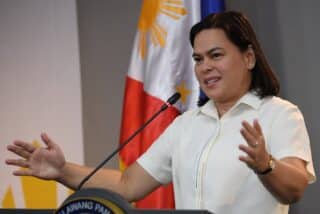Former Bureau of Internal Revenue commissioner Kim Henares was dead-on when she said that the petitioners for the disqualification of Bongbong Marcos Jr. should have focused on the Tax Code of 1977 alone, instead of throwing in all kinds of allegations that served only to muddle the main point and gave the Commission on Elections (Comelec) plenty of room to waltz around the issues raised.
It was under the Tax Code of 1977 that Marcos Jr. was convicted of the crime of failure to file tax returns, which carried with it not only the mandatory penalty of fine and imprisonment, but “in addition, perpetual disqualification from holding public office.” It was a terrible miscalculation to bring the Omnibus Election Code of 1985 into the discussion, which essentially requires conviction for a “crime involving moral turpitude” to disqualify a candidate.
All arguments should have stopped with the plain language of the Tax Code of 1977. There was no way out for Marcos Jr. to get around that law otherwise known as Presidential Decree No. 1158 promulgated by his own father during his martial law rule. That “perpetual disqualification” still stands to this day notwithstanding various amendments, the latest being the Tax Code of 1997.
The Tax Code and the Election Code provide distinct and separate crimes and grounds to disqualify a candidate. Marcos Jr.’s disqualification should have been prosecuted only under the Tax Code where “moral turpitude” is irrelevant in convictions under its own provisions. As it turned out, the Comelec strained its credibility by hammering on the lack of “moral turpitude” in Marcos Jr.’s conviction, thereby paving the way for him and the entire Marcos caboodle back to Malacañang. God help us!
CARMELA N. NOBLEJAS
cnn_wuzzup@yahoo.com




